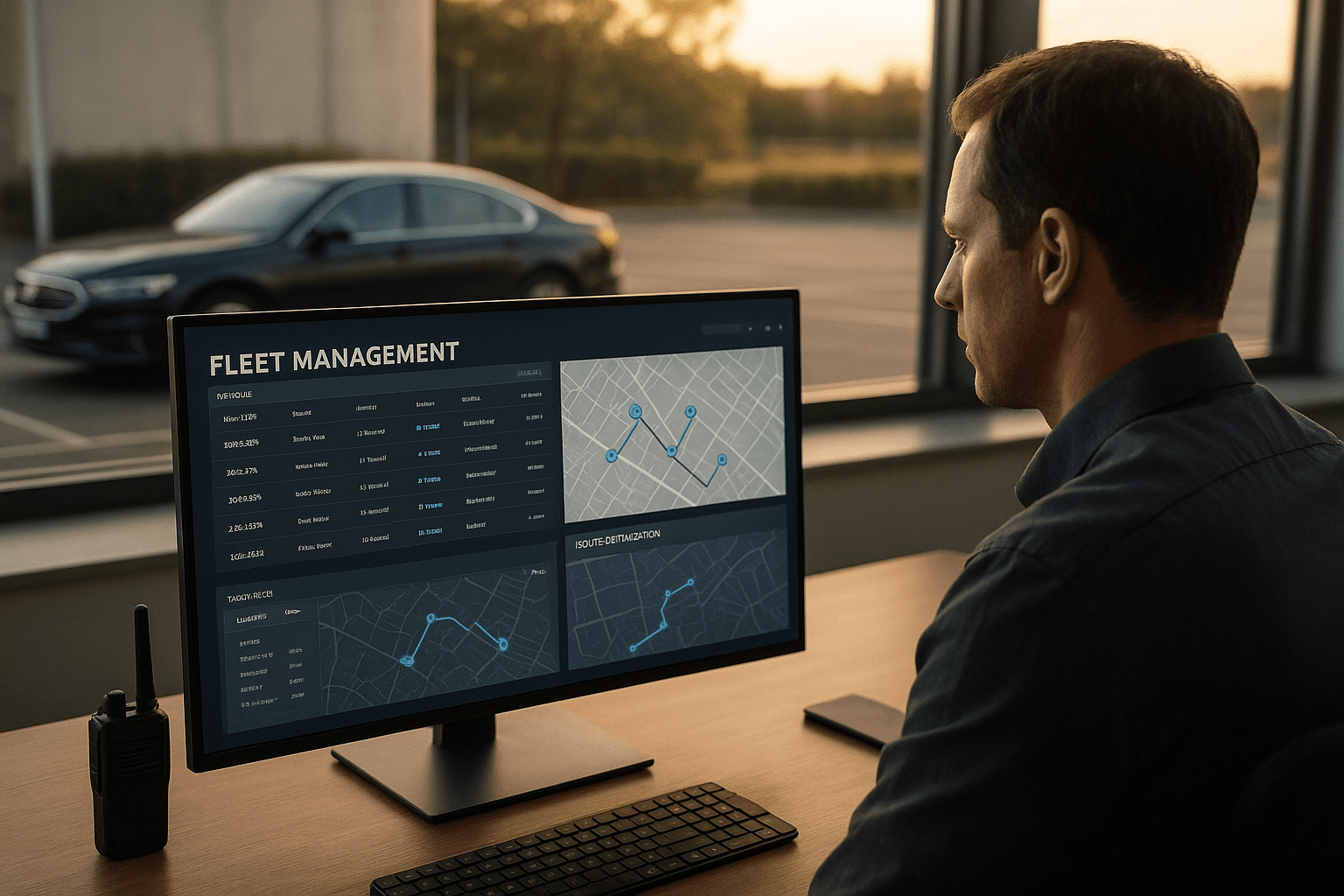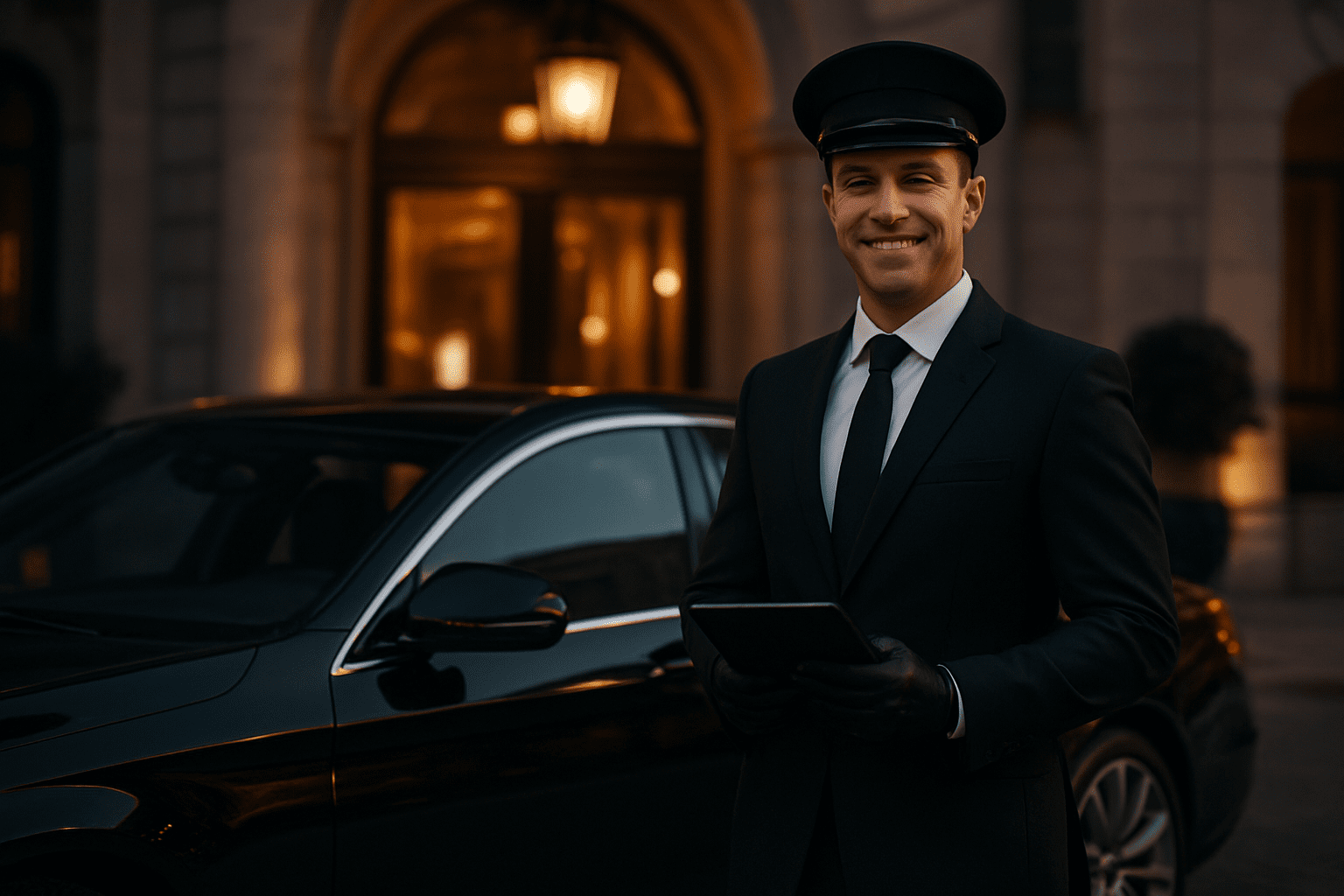Introduction
In today’s hyper-connected world, customer expectations are evolving rapidly. People no longer want generic responses or cookie-cutter solutions. They crave attention, recognition, and personalized interactions that reflect their unique needs. This is especially true in service-driven industries like dispatch and limousine services, where every client journey must feel exclusive and seamless.
That’s where personalized customer support comes in. More than just using someone’s name, personalization involves understanding each customer’s history, preferences, and expectations—and using that information to deliver meaningful, timely support. Done right, it turns ordinary customer service into an exceptional experience.
In this blog, we explore personalized customer support tips that can significantly boost satisfaction, loyalty, and operational efficiency. Whether you’re running a high-end limousine fleet or managing a dispatch service, these strategies will help you meet—and exceed—modern customer demands.
1. Why One-Size-Fits-All Fails in Customer Support
The Issue: Generic Responses Erode Trust
In many customer support setups, scripts are heavily relied upon. While templates save time, overusing them creates robotic interactions. Customers often feel unheard when their unique concerns are met with generic responses. This can be especially damaging in the dispatch or limousine service industry, where personalized experiences are expected.
With rising customer expectations, support that lacks human touch results in lower satisfaction. In competitive markets like dispatch services, this can lead to lost clients and negative reviews.
Furthermore, failing to personalize may increase resolution times. Agents struggle to address individual concerns effectively without understanding the customer’s context.
The Solution: Use Customer History for Better Conversations
One of the top personalized customer support tips is integrating customer history into interactions. When agents view a customer’s booking records, feedback, or past issues, they tailor responses more accurately. This is particularly helpful in industries like limousine services, where repeat customers appreciate recognition.
By greeting customers by name and referencing past interactions, agents create a more respectful and connected tone. This makes customers feel seen, not just processed.
Additionally, train agents to adjust their tone based on the customer’s personality or urgency. For instance, a corporate client using an executive dispatch service may prefer formal and swift communication, while a leisure customer may enjoy a warm, conversational approach.
2. Creating Customer Personas for Tailored Service
The Issue: Lack of Customer Understanding
Support teams often interact with customers without fully understanding who they are. Without insight into the customer’s needs, values, or behavior patterns, personalization efforts fall flat.
Dispatch and limousine services cater to various demographics—corporate clients, tourists, senior citizens, and more. Treating all of them the same leads to mediocre service and missed upsell opportunities.
Additionally, unsegmented communication can result in irrelevant offers, further frustrating the customer.
The Solution: Build and Apply Customer Personas
A vital personalized customer support tip is developing customer personas. These are profiles based on demographic and behavioral data—age, travel habits, preferences, etc. When personas are integrated into support CRM systems, agents can easily understand customer expectations.
For example, a frequent airport transfer user may value punctuality over luxury, while a wedding client may prioritize elegance and comfort in limousine service. Customizing interactions based on these insights can dramatically improve satisfaction.
Moreover, these personas can help in dispatch businesses by enabling agents to offer time-sensitive promotions or suggest relevant upgrades like VIP dispatch options or event-based service bundles.
3. Empowering Agents with Real-Time Personalization Tools
The Issue: Limited Tools Lead to Poor Personalization
Many companies provide their support agents with outdated or limited tools. Without access to real-time data, personalization efforts become inefficient and inaccurate. In fast-paced industries like dispatch services, this delay can severely impact customer experience.
Agents may unintentionally provide incorrect information or miss key opportunities to resolve issues swiftly. This frustrates customers and damages brand credibility.
Also, without analytics tools, tracking customer behavior or preferences is almost impossible.
The Solution: Leverage Real-Time CRM and AI Tools
Providing agents with modern, AI-powered CRM systems is one of the most effective personalized customer support tips. These platforms display recent bookings, cancellations, and previous queries, helping agents personalize communication effortlessly.
For example, if a limousine client frequently books during holidays, the system can prompt agents to offer seasonal packages. Similarly, if a dispatch customer often faces route delays, the system can flag alternative routes or VIP scheduling.
Additionally, real-time chatbots equipped with personalization features can handle basic queries while directing complex issues to human agents. These tools ensure quick, tailored responses, increasing efficiency and customer satisfaction.
4. Personalized Email Responses That Build Loyalty
The Issue: Cold, Template Emails
Customers often receive support emails that are too formal, vague, or generic. This approach not only fails to solve problems effectively but also signals a lack of care. In industries like limousine services, where clients expect luxury and attention, generic email replies undermine brand value.
Template-based responses can be confusing and feel dismissive, especially when the issue is urgent.
The Solution: Use Dynamic Templates with Personal Touches
An effective personalized customer support tip is using dynamic email templates. These blend structure with flexibility, allowing agents to insert customer-specific data, like booking numbers, names, and issue history.
Start by addressing the customer by name. Then, mention the specific issue raised. Finally, propose a solution referencing past actions (e.g., “As you’ve booked with us for your last three airport transfers…”). This shows attention to detail and respect.
Moreover, following up with personalized check-ins after issue resolution—such as asking how their last limo ride was—builds long-term trust and loyalty.
5. Using Data Analytics to Predict Customer Needs
The Issue: Reactive vs. Proactive Support
Most support systems wait for customers to reach out with a problem. This reactive approach can miss opportunities for proactive service, leading to preventable dissatisfaction. In the dispatch sector, last-minute hiccups can hurt both customers and brand reputation.
Without predictive analytics, businesses fail to recognize patterns that can inform better service.
The Solution: Proactive Engagement Through Predictive Insights
One of the strongest personalized customer support tips involves using data analytics to predict and resolve issues before they arise. If a customer consistently books limousines during peak hours, systems can auto-suggest pre-booking options or offer early-bird discounts.
Analytics can also help identify churn risks. If a regular dispatch user’s engagement declines, a personalized message with a loyalty offer can bring them back.
Additionally, by analyzing reviews and feedback, support teams can identify pain points across user segments and preemptively address them. This proactive care demonstrates commitment and enhances the customer journey.
6. Integrating Omnichannel Personalization
The Issue: Fragmented Customer Interactions
When customers switch from one platform to another—email to chat to phone—information often gets lost. This leads to repetition, frustration, and inefficient support. For dispatch services, this can mean critical delays or miscommunication.
Customers expect seamless service, regardless of the channel they choose.
The Solution: Build a Unified Support Experience
One of the most recommended personalized customer support tips is to adopt an omnichannel strategy. Use CRM systems that unify data from all channels—calls, chats, social media, and email.
For example, if a client requests a limousine change on Instagram and then follows up via phone, agents should see both interactions. This continuity prevents redundancy and assures the customer of professional service.
Also, allow customers to set channel preferences. Some prefer WhatsApp updates, others like email confirmations. Honoring these preferences shows respect and builds trust, especially in high-end services like limousine dispatch.
7. Training Agents for Personalized Interactions
The Issue: Skill Gaps in Support Teams
Even the best tools fail if agents aren’t trained in using them effectively. Many support agents struggle to personalize conversations because they lack soft skills or knowledge about the customer journey.
This results in bland, ineffective service, especially in industries where client experience is everything.
The Solution: Comprehensive Personalization Training
A key personalized customer support tip is to invest in continuous training. Teach agents how to read customer cues, understand preferences, and adjust communication styles. Roleplay exercises can simulate real-life scenarios.
Encourage empathy-driven communication—understanding not just what the customer wants, but how they feel. In dispatch and limousine services, where travel stress is common, this makes a huge difference.
Additionally, gamify performance tracking. Reward agents who excel in personalization with incentives. This builds motivation and embeds personalized service into company culture.
8. Personalization in Crisis Management
The Issue: Standard Responses During High-Stress Situations
When things go wrong—delays, cancellations, or accidents—many companies revert to formal, templated apologies. While this might fulfill procedural requirements, it fails emotionally. In emergencies, customers need more than scripted sympathy.
This issue is particularly critical for dispatch and limousine clients relying on punctuality and reliability.
The Solution: Customize Support in Critical Moments
An essential personalized customer support tip is to prioritize empathetic, real-time personalization during crises. Train agents to respond with emotion-sensitive language and context-specific solutions.
For instance, if a wedding limousine is delayed, go beyond apologies. Offer a complimentary upgrade or arrange alternative transport, and follow up with a personalized apology and discount for future bookings.
Use CRM flags to highlight high-priority clients or emotionally sensitive events. This ensures the response is not only fast but also appropriately compassionate.
9. Measuring the Impact of Personalization
The Issue: Lack of Personalization Metrics
Without tracking the effect of personalization, companies cannot improve. Most businesses only measure response time or ticket closure, ignoring customer sentiment or personalization depth.
This limits growth and obscures valuable feedback.
The Solution: Track Key Personalization KPIs
Another important personalized customer support tip is to measure the right metrics. Track customer satisfaction (CSAT), first-contact resolution, and net promoter score (NPS) with personalization in mind.
Add follow-up surveys asking, “Did the support feel tailored to your needs?” This helps assess the emotional effectiveness of your service.
For dispatch and limousine services, monitor repeat booking rates and service upgrade conversions. These indicate whether customers felt valued and encouraged to return.
10. Leveraging Personalization for Upselling Opportunities
The Issue: Missed Sales Chances Due to Lack of Insight
When agents treat every interaction as just a resolution task, they miss upsell and cross-sell opportunities. Customers open to value-adds go unnoticed if agents aren’t trained to recognize them.
This is a lost revenue stream, especially in luxury-oriented businesses like limousine services.
The Solution: Smart Personalization for Smart Selling
Use personalization not just to resolve issues, but to enhance value. Train agents to identify cues—like a customer mentioning an upcoming event—and suggest relevant services. This could include luxury limousine packages, advanced dispatch bookings, or bundled offers.
Present suggestions as benefits rather than sales pitches. For example, “Since you’re attending a corporate gala, would you like to try our executive limo package with complimentary waiting time?”
This kind of soft upselling, grounded in personalization, feels helpful—not pushy.
Conclusion
Personalization isn’t a one-time effort—it’s a philosophy. It demands a shift in mindset, tools, and training. But the payoff is enormous: loyal customers, stronger word-of-mouth, and a superior brand image.
By applying these personalized customer support tips, businesses—especially in dispatch and limousine services—can turn every interaction into a memorable experience.
Home | About Us | Pricing | Get Started | FAQ | Dispatch Daily | Contact Us
WhatsApp | Facebook | LinkedIn




Leave a Reply